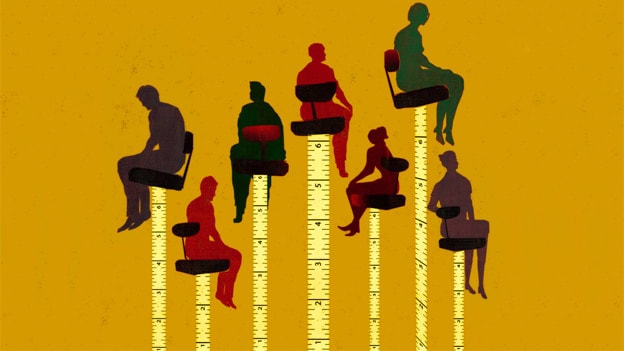Redefine performance management with future technology

In today's time, the focus is shifting from employee engagement to employee experience, and this is changing the landscape of performance management. Some of the things that we see have seen changing include:
- Annual grading being replaced by a continuous feedback model with regular byte-sized conversations.
- The importance is seen shifting from past behaviors to future coaching.
- Bell curves are being dropped in favor of calibration modules.
- Customization of performance management.
With the new model of performance management, the future of organizations is more focused on trust and involvement by employees. Tech adoption is slow yet widespread in the performance management space. Data and insights captured during surveys by the organization are being put to use to design this space.
Problems with the current annual cycle system
The reason for creating a yearly cycle was to stay ahead of the curve, be agile, etc. but if you're limited to an annual policy, you're limiting yourself. You are identifying gaps vs. enabling someone to succeed and giving feedback at a time when it is way past the situation. Therefore it's not helping anyone to stay ahead of the curve. HR is conditioned to follow these feedback sessions yearly or quarterly or even monthly. However, this is making feedback systems process-centric rather than human-centric. HRs need to liberate themselves from the binary.
Secondly, there is another cycle that runs parallel with the feedback cycle, which is the monetary cycle. So if that is the only time we are going to talk about performance, the employee focuses on whether or not they are getting a raise. Eventually, it comes down to how much has been added to salary and not paying attention to the feedback. It is crucial to separate the two cycles to make both effective. Another issue is that employees work harder, write more emails, etc. when the annual cycle is arriving because that is the only thing that sticks.If some other employee works hard throughout the year and messes around during the yearly cycle that will be considered rather than previous work and they know this.
Here are some key tips for facilitating a better performance management system:
- Employee accountability: Yuvaraj Srivastava, Group CHRO, Makemytrip.com, says, "The performance of an individual should be managed by the individual itself. When you put the management in the hands of an HR or a third party, it becomes more like monitoring a child." Currently, we are making transactional changes like the bell curve to something different, yearly to quarterly etc. but we will see a real difference when employees take ownership. They need to start setting their own goals and evaluate them.
- Turn work anniversaries into annual feedback: Rajendran Dandapani, Director of Engineering, Zoho Corporation, says, "We do annual appraisals, but they are not in groups. Everybody joins in on a different date, so we have it close to their work anniversary. It is annual for them, and it's an added celebration and appreciation of the time they have spent with us. Doing this ensures there is no comparison and jealousy but more appreciation for others."
- Empowering leaders to give weekly feedback: If you want to enhance performance, you should be giving continuous feedback. That needs a behavioral change across the organization. The team leaders should be sensitized towards the aspect of working on their team member's strengths to increase productivity. Therefore there needs to be week on week feedback because everything is changing so rapidly. We need to bring about philosophical, behavioral, and cultural change, and this can be challenging. Therefore it is advised to use various tools, but one needs to remember that tools are just an enabler, human efforts are required.
- Peer to Peer Appreciation: Sukhjit S Pasricha, Group CHRO, Kotak Mahindra Bank (Chair), remarks, "We are bringing a culture of collaboration and adding a layer of appreciation to it. We have a most thanked employee of the month, and that is different from the employee of the month." People often thank others for the work they receive, but it is crucial to appreciate good work irrespective of whether it involves you or not. This builds a peer to peer feedback and appreciation model that helps enhance work spirit.
- Start at the beginning: Anjali Byce, CHRO, Sterlite technologies, states, "During the interview process we make them fill a roadmap for themselves. This entangles them in the entire business by researching about the organization and understanding our competitor base. By the time they are done with it, you have already built a 30-60-90 day, and they have channelized their goals.
Conclusion
Having an annual performance process makes it a review rather than a reflection. The goal of the discussion is not to label good and bad but to be supportive. While we are talking about performance management, a natural by-product of it is good leadership coaching. Performance reflection, combined with coaching, enhances productivity tremendously and builds a positive spirit.
(This article is based on a panel discussion on Embracing productivity-Redefine performance management with future tech conducted during People Matters Tech HR 2019.)











